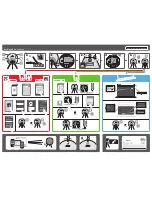Summary of Contents for ST600R
Page 2: ...ST600R Autopilot Control Unit Owner s Handbook Document number 81134 3 Date May 2001 ...
Page 3: ......
Page 5: ...ST600RAutopilotControlUnit ii ...
Page 24: ...13 Chapter2 BasicOperation SeaTalk Data Chart ...
Page 41: ...30 ST600RAutopilot ControlUnit ...

















































